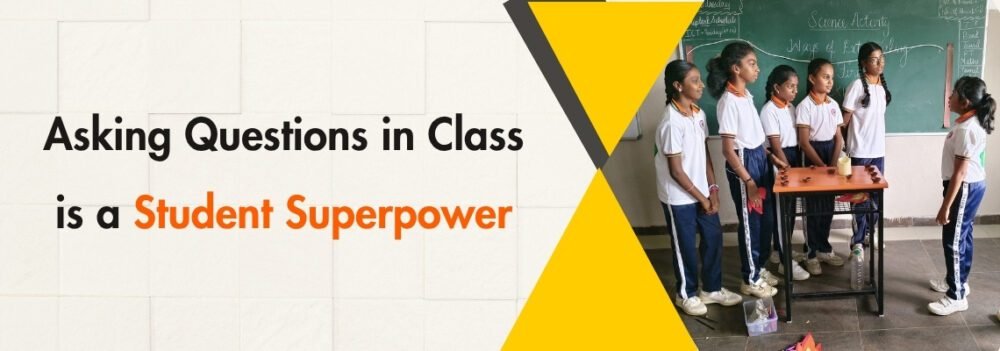Alex always sat quietly in the front row, nodding along as his teacher explained new concepts. One afternoon, during a chemistry lesson on acids and bases, his teacher paused and asked, “What’s unclear about today’s topic?” Alex hesitated, then raised his hand: “Why does the pH scale run from 0 to 14?” That moment transformed him from a passive listener to an active learner—and his confidence and understanding took off.
Why Asking Questions in Class Matters
When students embrace asking questions in class, they:
Gain Clearer Understanding
Instead of moving on with confusion, a question helps both student and teacher pinpoint exactly which part needs clarification.
Strengthen Memory
Formulating and voicing a query engages the brain in retrieval practice, boosting retention of the concept.
Build Confidence
Every answered question reinforces a student’s belief in their ability to learn and participate.
Spark Classroom Energy
One student’s inquiry often inspires peers to think more deeply and join the dialogue, making the lesson more interactive.
Alex’s Story: From Silent to Inquisitive
Before that chemistry class, Alex avoided speaking up. He worried about sounding “silly” or interrupting the lesson. After he mustered the courage to ask his first question, two things happened:
- Personal Breakthrough: He realized that his classmates also had the same doubt and appreciated his question.
- Teacher Recognition: His teacher began inviting questions at key points, creating a safer learning environment.
Within a week, Alex’s grades improved. His homework errors shrank because he no longer carried misunderstandings into assignments.
How Students Can Build the Question Habit
Use these strategies to make asking questions in class a natural part of learning:
Prepare in Advance
- Before class, jot down one thing you find confusing in yesterday’s lesson.
- Turn it into a specific question: “Can you explain why the short‑run supply curve shifts right?”
Start with Simple Queries
- If you feel shy, begin with low‑risk questions: “Could you repeat that step?” or “What does this term mean?”
Use the “5 Ws + H” Framework
- Who, What, When, Where, Why, and How. For example: “Why does the Earth’s tilt cause seasons?”
Leverage Note‑Taking
- Leave space in your notes to write questions. After class, review and ask the teacher or a peer for answers.
Practice with Peers
- Form a small study group. Role‑play asking and answering questions to build confidence.
Tips for Teachers and Education Coaches
Teachers and coaches play a critical role in nurturing inquiry:
- Pause Strategically
Build in silence after explaining a concept to give students time to think and formulate questions. - Praise Every Question
Respond positively—“That’s a great question!”—to encourage more participation. - Model Inquiry
Pose your own questions: “I wonder how this principle applies in real life?” - Use “Think‑Pair‑Share”
Let students discuss possible questions in pairs before sharing with the whole class. - Provide Question Prompts
Display starters on the board: “I’m curious about…,” “Can you explain why…,” “How would we test…
Common Roadblocks and Solutions
| Roadblocks | Solutions |
|---|---|
| Fear of being wrong | Remind students that mistakes fuel learning; normalize errors. |
| Time constraints in lesson plan | Allocate 2–3 minutes per topic for student questions. |
| Overly complex questions | Encourage students to break big questions into smaller parts. |
The Superpower Effect on Learning

By consistently asking questions in class, students experience:
- Sharper Critical Thinking: Each question uncovers deeper layers of the topic.
- Enhanced Engagement: Curious minds stay focused and alert.
- Improved Academic Results: Clarified doubts lead to fewer mistakes on tests and homework.
Research shows that classrooms where inquiry thrives see higher student satisfaction and better overall performance.
Just like Alex discovered, asking questions in school class is a true superpower. It transforms passive listeners into confident learners who drive their own education. By adopting simple habits—preparing queries, using prompts, and practicing in groups—students unlock deeper understanding and achieve stronger academic results. Teachers and education coaches who foster this culture of curiosity will guide every student toward success. Encourage one question today, and watch your classroom’s superpowers emerge



